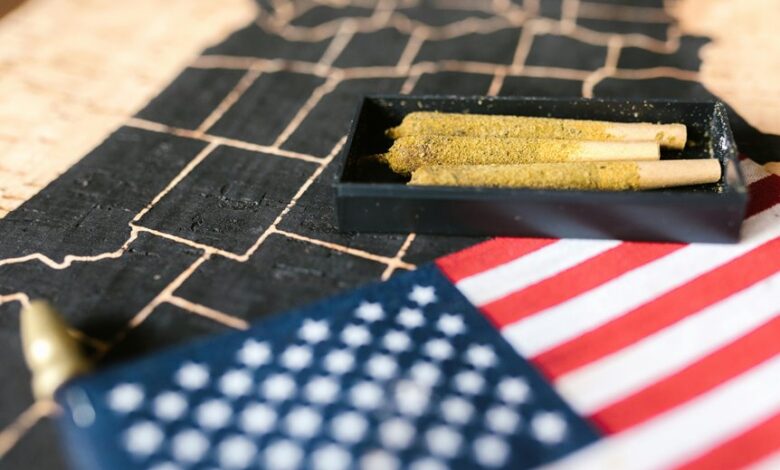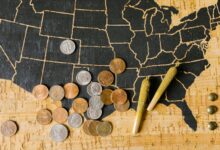Is Cbd Illegal in Any States

The legal status of CBD varies significantly across the United States. While the 2018 Farm Bill legalized hemp-derived CBD at the federal level, certain states have enacted stringent regulations or outright prohibitions. These disparities create confusion for consumers and pose challenges for businesses. Understanding which states impose these restrictions is crucial for navigating the complex landscape of CBD legality. What are the specific regulations in these states, and how do they affect access to CBD products?
Overview of CBD Legislation in the U.S
As the landscape of cannabis legislation continues to evolve, understanding the legal status of cannabidiol (CBD) in the United States becomes increasingly complex.
CBD legality trends reveal a patchwork of state regulations influenced by federal regulations, which have shifted since the 2018 Farm Bill.
This legislation legalized hemp-derived CBD, yet individual states maintain varying degrees of restrictions, complicating the overall legal framework.
States With Strict CBD Regulations
Several states have enacted stringent regulations that significantly limit the availability and use of CBD products, even in the wake of federal legalization through the 2018 Farm Bill.
These state regulations often include specific licensing requirements and restrictions on hemp-derived CBD's potency.
Consequently, legal challenges frequently arise as advocates push for reform, emphasizing the need for greater access to these beneficial products.
States Where CBD Is Completely Banned
A limited number of states maintain outright bans on CBD products, reflecting ongoing concerns regarding the substance's safety and regulatory compliance.
These stringent state regulations result in a lack of clarity surrounding CBD legalities, often driven by apprehensions about unregulated markets and potential health risks.
Such prohibitions limit consumer access and perpetuate confusion within the broader landscape of cannabis-related legislation across the United States.
Implications for Consumers and Businesses
While the legal landscape surrounding CBD varies significantly from state to state, its implications for consumers and businesses are profound.
Consumers face challenges in asserting their rights, particularly where CBD legality is ambiguous.
Businesses must navigate complex compliance requirements, risking penalties or shutdowns.
This precarious environment demands vigilance to ensure consumer rights are upheld while maintaining adherence to evolving regulations, impacting market stability and growth.
Conclusion
In conclusion, while the federal legalization of hemp-derived CBD has paved the way for broader acceptance, a patchwork of state regulations continues to create ambiguity. As the saying goes, "a chain is only as strong as its weakest link," illustrating that the inconsistencies across states can hinder both consumer access and industry growth. It remains essential for stakeholders to navigate these complexities carefully, ensuring compliance and advocating for clearer guidelines to foster a more unified market.






